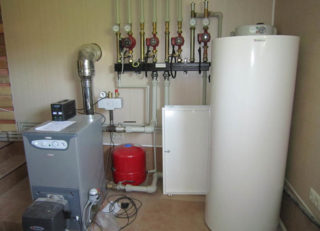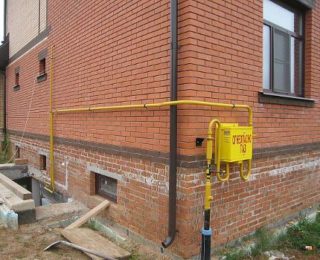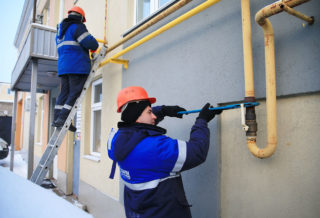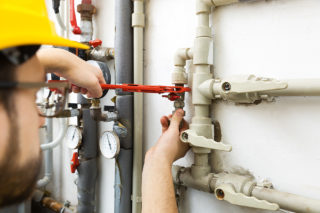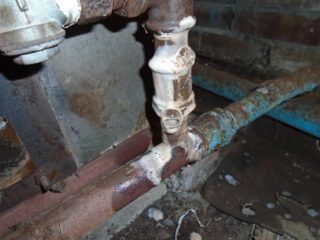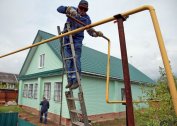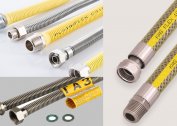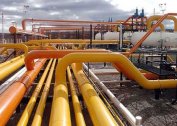The use of natural gas as a fuel for heating residential buildings and heating water for domestic purposes has significantly improved the quality of life of people. However, along with numerous benefits, this type of utility service is potentially hazardous. Despite the continuous improvement of this service sector, cases of poisoning of people and explosions in residential and commercial buildings are observed more and more often. The cause of these events was a faulty in-house gas equipment (VDGO) or a violation of the rules for its operation. In order not to replenish the tragic statistics, you should understand what this concept includes, study the norms and safety measures for using devices.
Definition of the concept of HDL
The rules for the use of gas in apartment buildings and private houses were approved by Government Decision No. 410 of 05/14/2013. The regulatory act discloses the basic concepts related to the organization and operation of devices and devices intended for transportation, storage and direct use of household gas for its intended purpose.
VDGO include such products and structures:
- pipelines passing from the stopcock to the riser, which are the joint property of the residents;
- cylinders or tanks with liquefied gas, designed to supply one building;
- safety devices;
- locking devices;
- control and indication systems;
- controllers.
Domestic gas equipment includes the following:
- slabs;
- boilers;
- Columns
- burners;
- lamps;
- radiators;
- cranes
- pipes and nozzles;
- Counters
- gas detectors.
The difference is that the common equipment is located in the basement, porch and on the technical floor, while the internal equipment is installed in apartments, where access to it is limited by the number of residents.
Who is responsible for the state of the VDGO
In accordance with the requirements of applicable laws on the procedure for the use of gas domestic equipment, the responsibility for its technical condition lies with the actual owners of the building. These are the owners of private mansions, co-owners of apartment buildings or companies managing them.
According to regulatory documents, responsible persons are required to conclude agreements with specialized organizations licensed to conduct diagnostics, maintenance and installation of gas equipment. The list of such enterprises is approved by a separate document, which is freely available. Control over the implementation of the law is entrusted to gas facilities supplying public services to citizens.
Checking the condition of the equipment is carried out on schedule. When compiling it, the service life of materials, the operating conditions of the system and the date of the last inspection are taken into account. For the absence of a contract, a person may be fined and the building itself disconnected from the supply.
Maintenance List
The volume and frequency of servicing the domestic gas facilities in each case is determined individually.These activities are carried out in accordance with the instructions developed on the basis of regulations taking into account the specifics of the region and the individual building.
Maintenance Tasks:
- inspection of equipment condition;
- determination of the need and scope of routine maintenance;
- elimination of detected defects;
- creation of conditions for extending the service life of devices and pipelines;
- elimination of prerequisites for emergencies.
During maintenance, the following list of measures is carried out:
- inspection of pipelines and devices for their wear and tear;
- measurement of wall thickness of communications;
- assessment of the condition of the protective coating;
- identification of leaks, as well as the prerequisites for their occurrence;
- adjustment or replacement of individual parts, mechanisms and sections of the pipeline;
- system tightness check;
- inspection of the ventilation system, and if necessary, cleaning it.
One of the mandatory points for implementing the regulation is to instruct the residents of the house on how to use household gas safely and relate to the equipment entrusted.
Gas Inspection Frequency
Gas equipment checks are carried out with the following frequency:
- Planned - in accordance with long-term schedules, which are drawn up taking into account the warranty periods established by manufacturers. As a rule, they are carried out after the warranty. Based on the results, an act is drawn up according to which the term is extended or the installation of new equipment is planned. The warranty is given for steel pipes - 30-50 years, for plastic pipes - 50-80 years.
- Periodic - every 3-5 years, after the extension of the term or the last examination. The purpose of these measures is to identify and eliminate the malfunctions that have occurred, and to prevent the development of defects.
- Unscheduled. Conducted at the request of citizens or representatives of the owners of the house. Inspection by signals about a gas leak is carried out immediately by emergency crews. Troubleshooting equipment is performed during the day.
Regardless of the type of inspection, a full inspection of the equipment is carried out with the briefings covering the maximum number of residents.
Operation of domestic gas equipment
The operation of intra-house gas communications requires compliance with the following rules:
- conducting annual and unscheduled briefings on the rules of gas use and safety;
- keeping equipment clean;
- monitoring the effectiveness of the ventilation system, regular cleaning of gratings and channels;
- closing the taps after the end of the use of gas appliances for the intended purpose;
- immediate shut-off of cranes, evacuation of residents and calling an emergency team when a leak is detected.
It is forbidden to independently make changes in communications, to carry out the replacement of instruments and devices. You can not redevelop the rooms where there are gas appliances. It is unacceptable to leave working products unattended, to entrust their operation to incapable persons.
